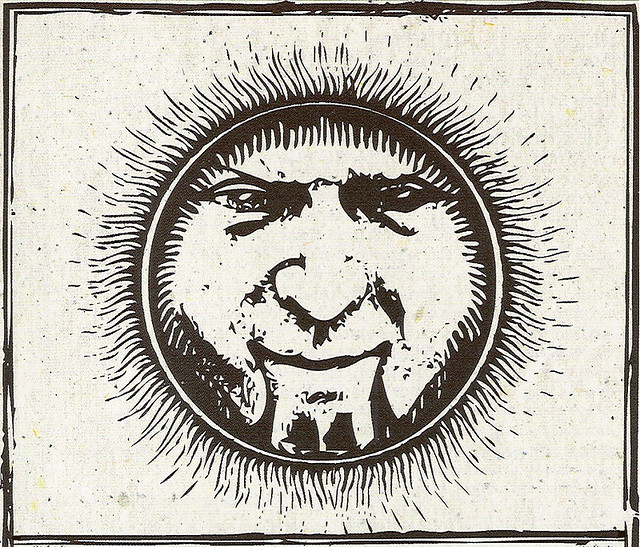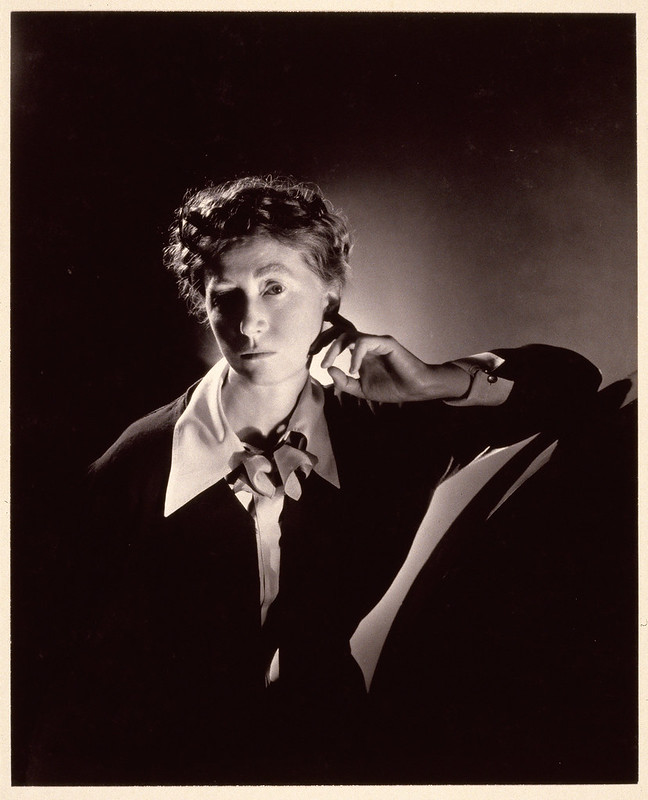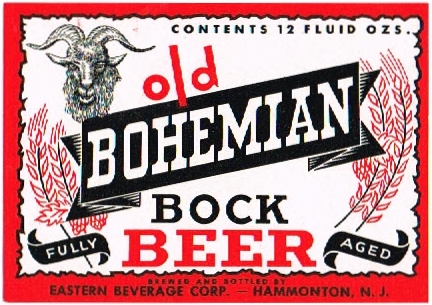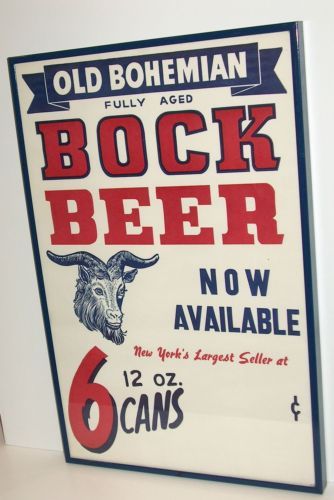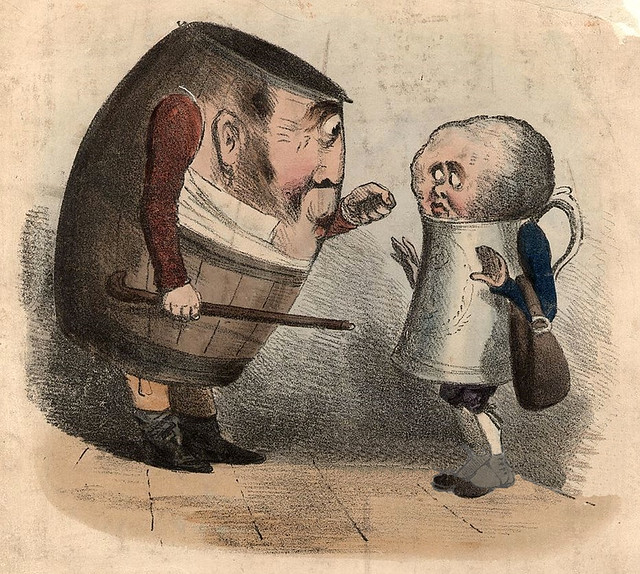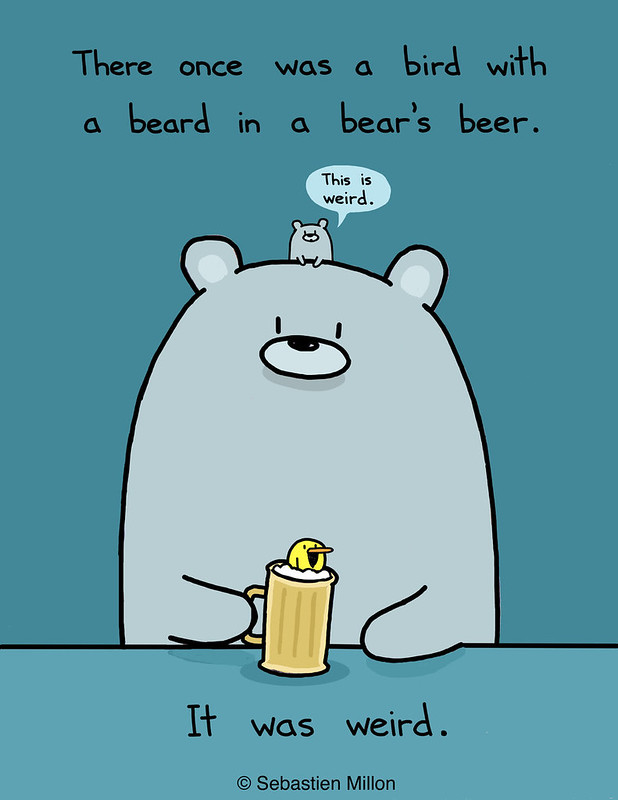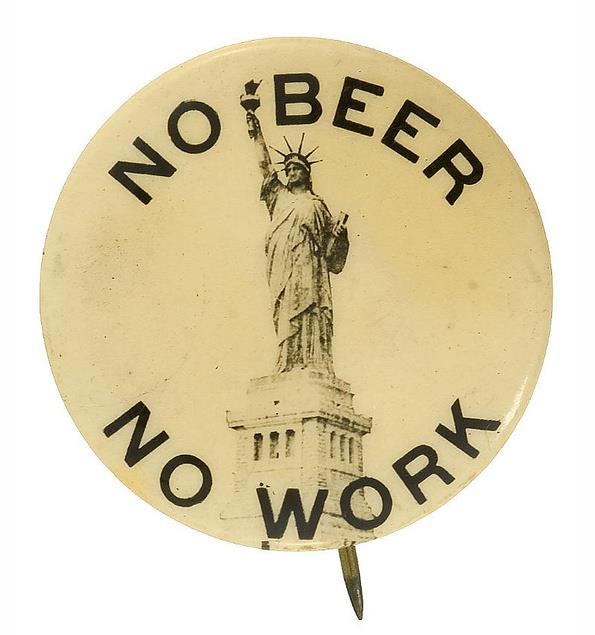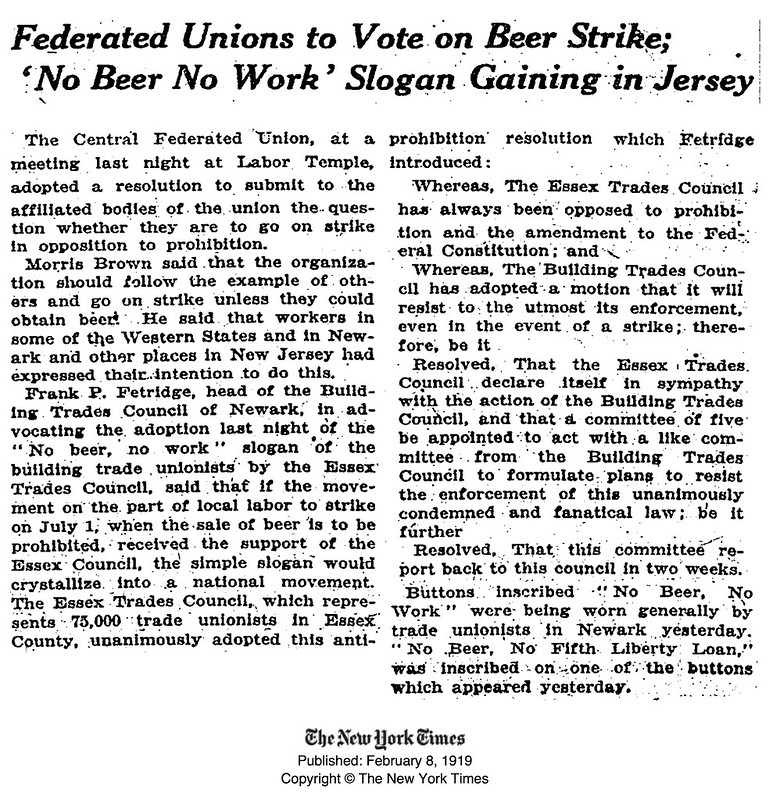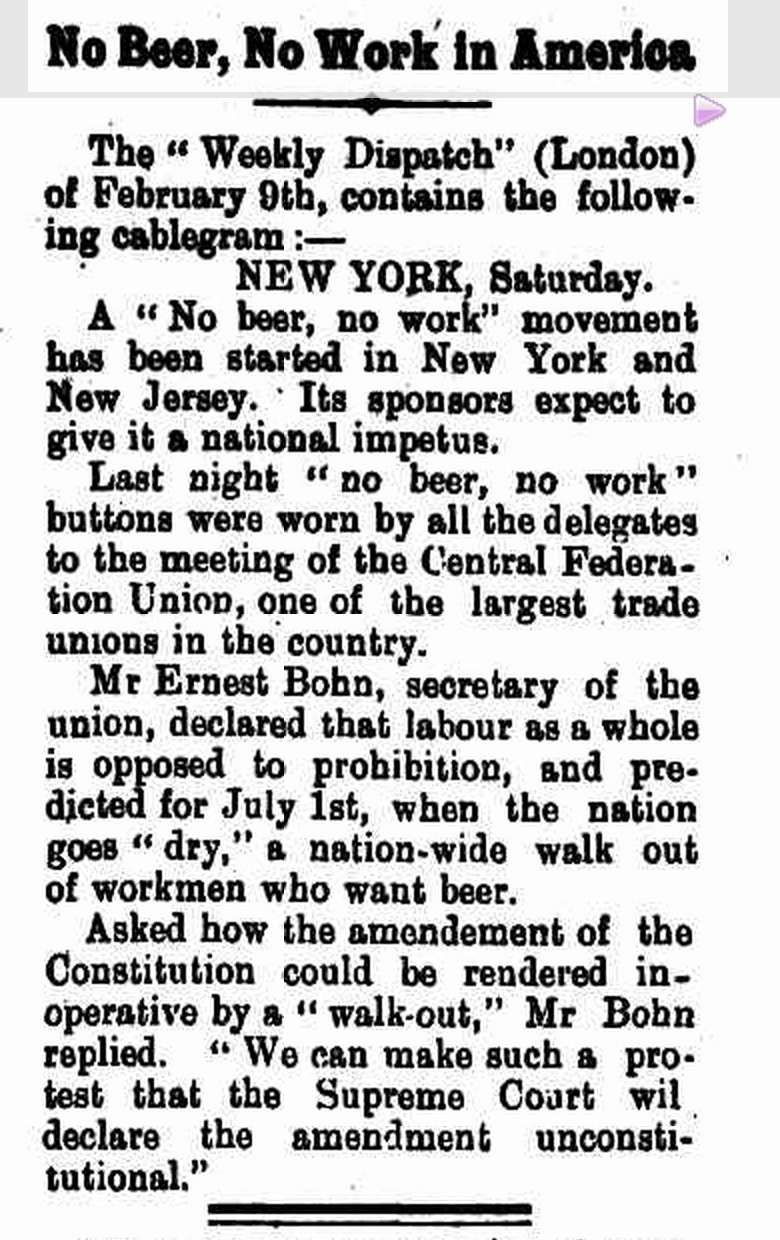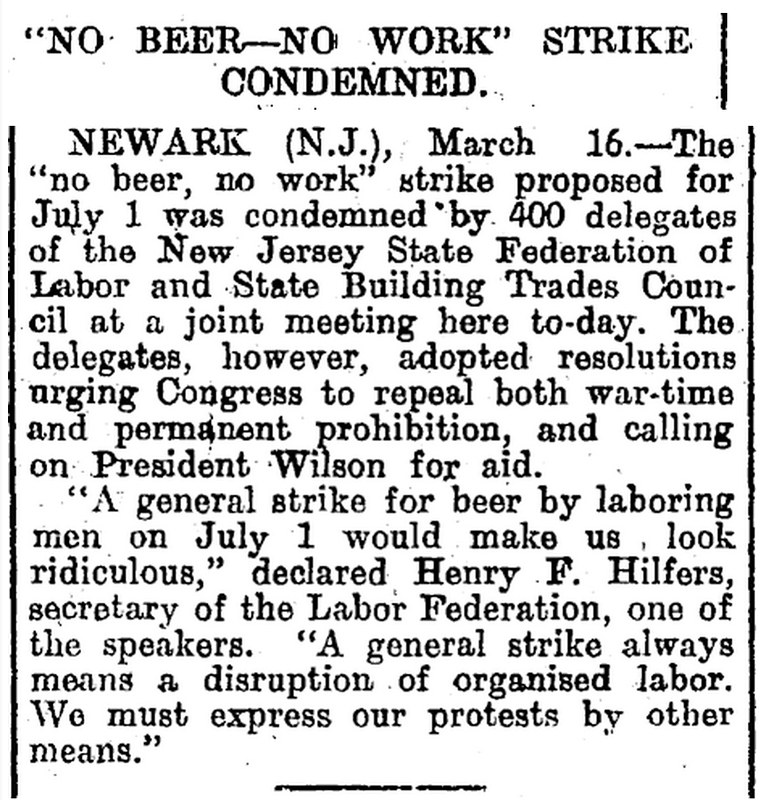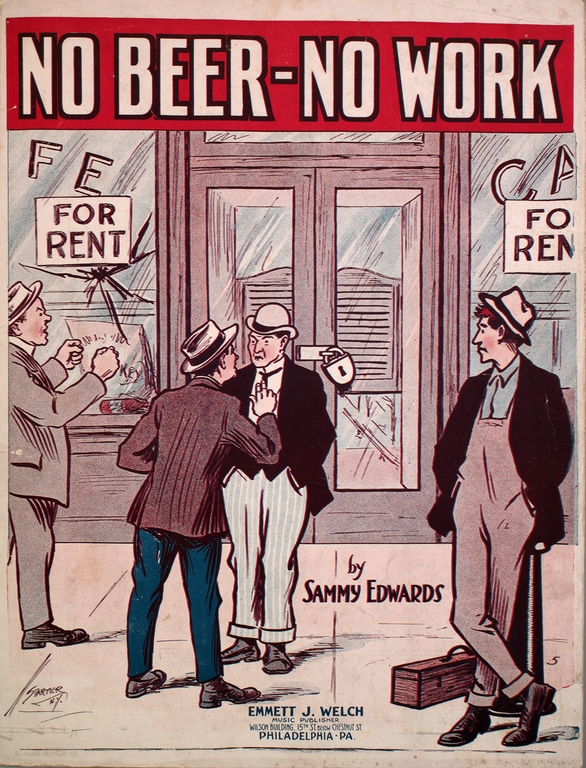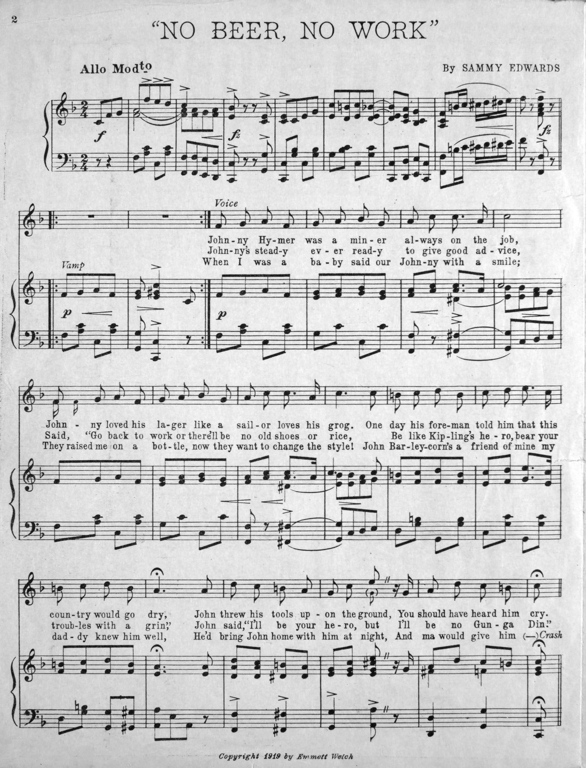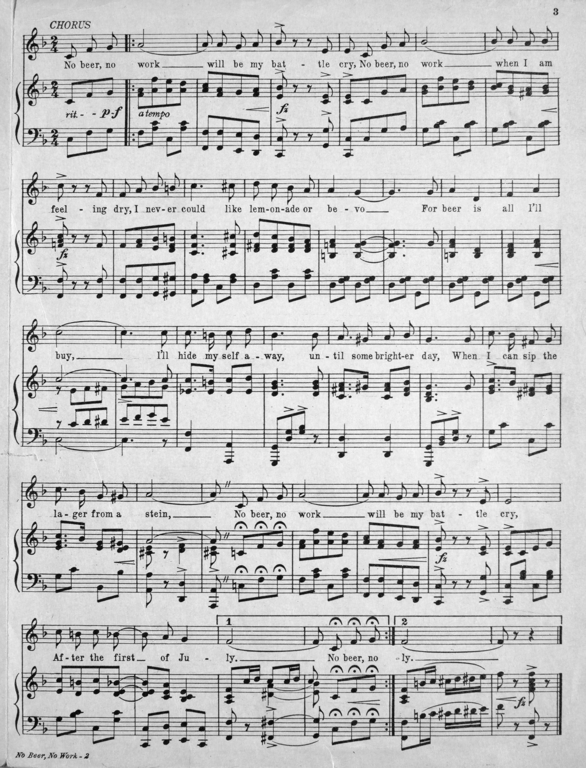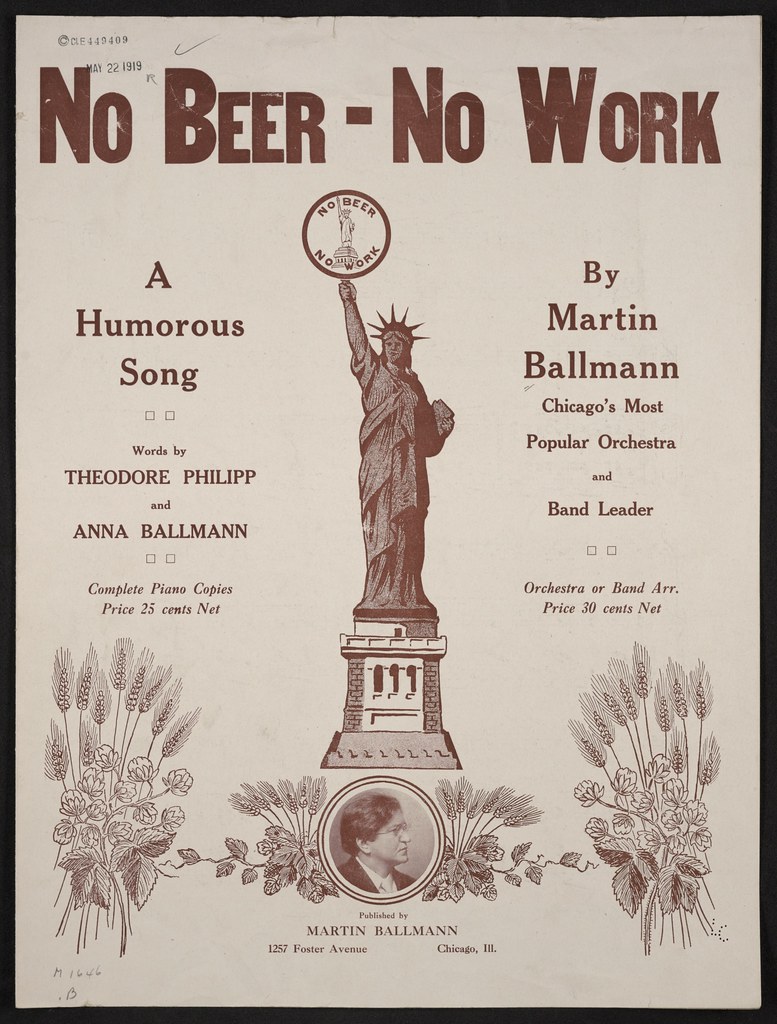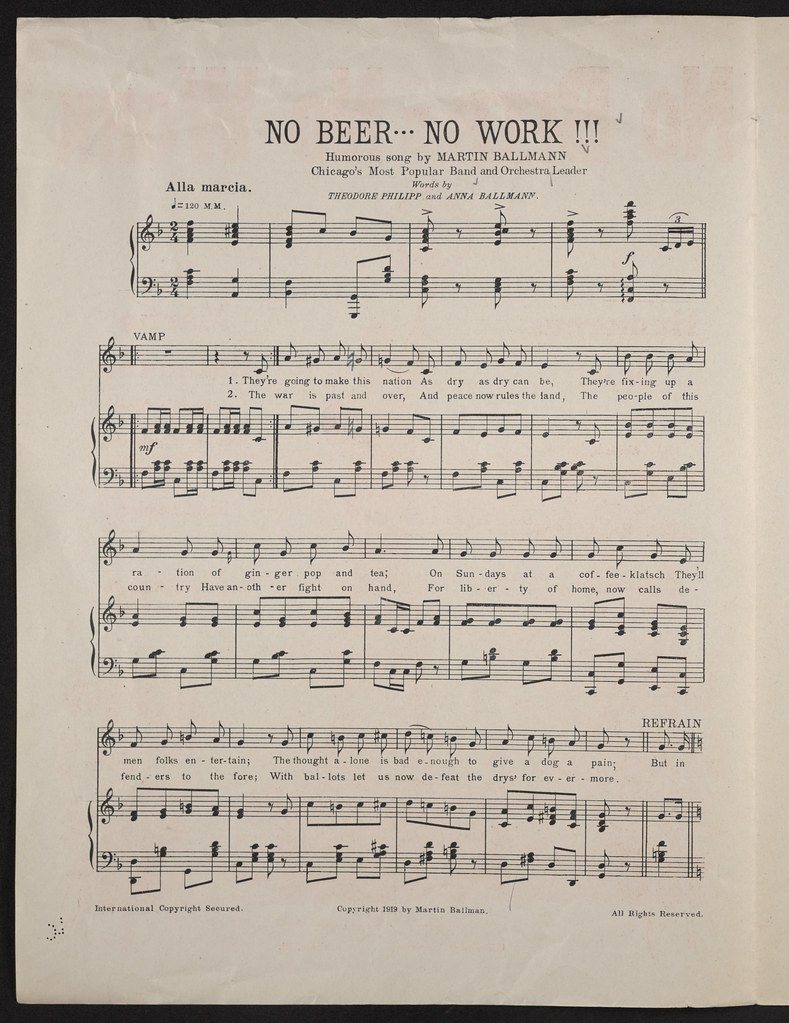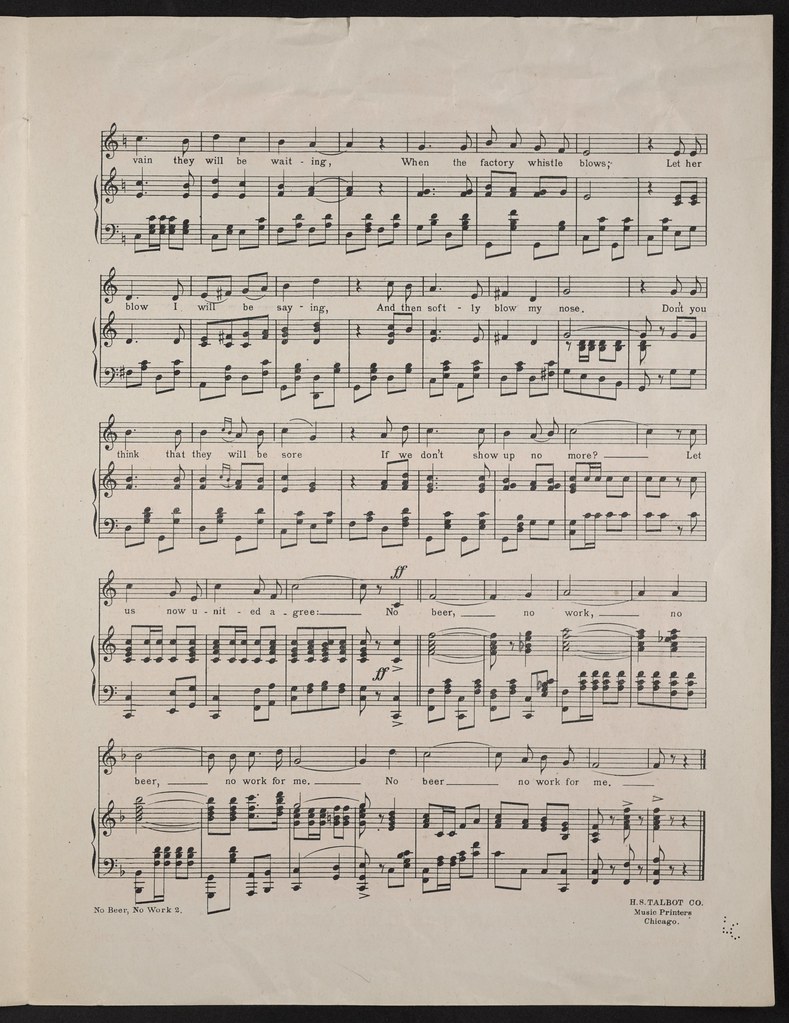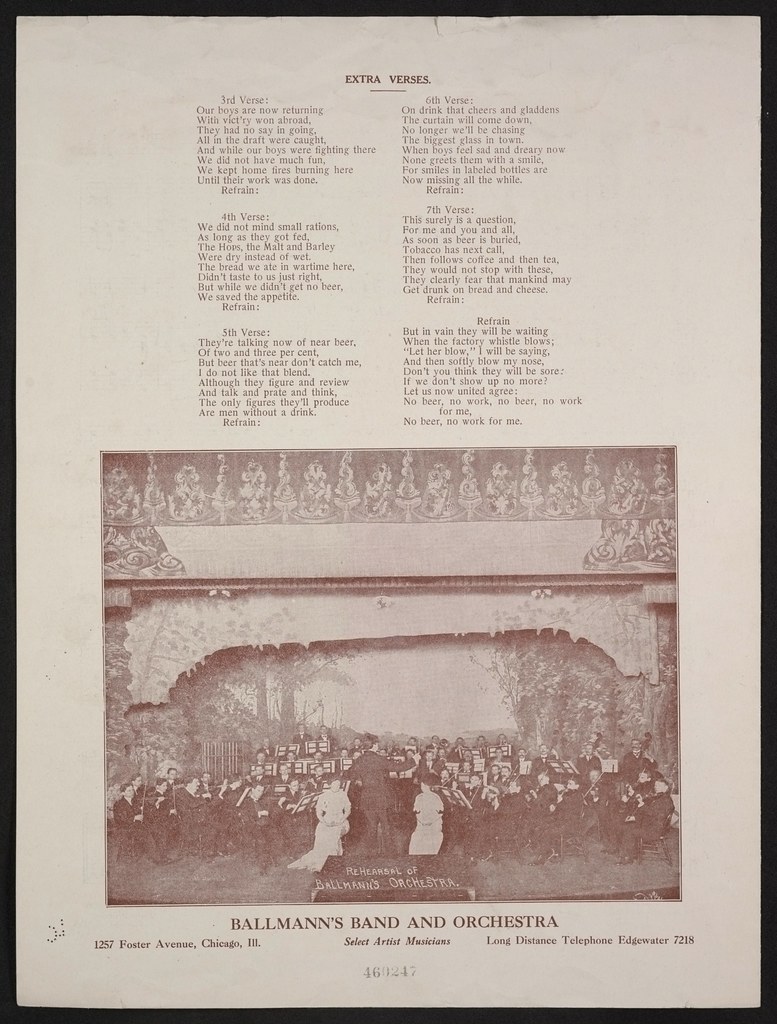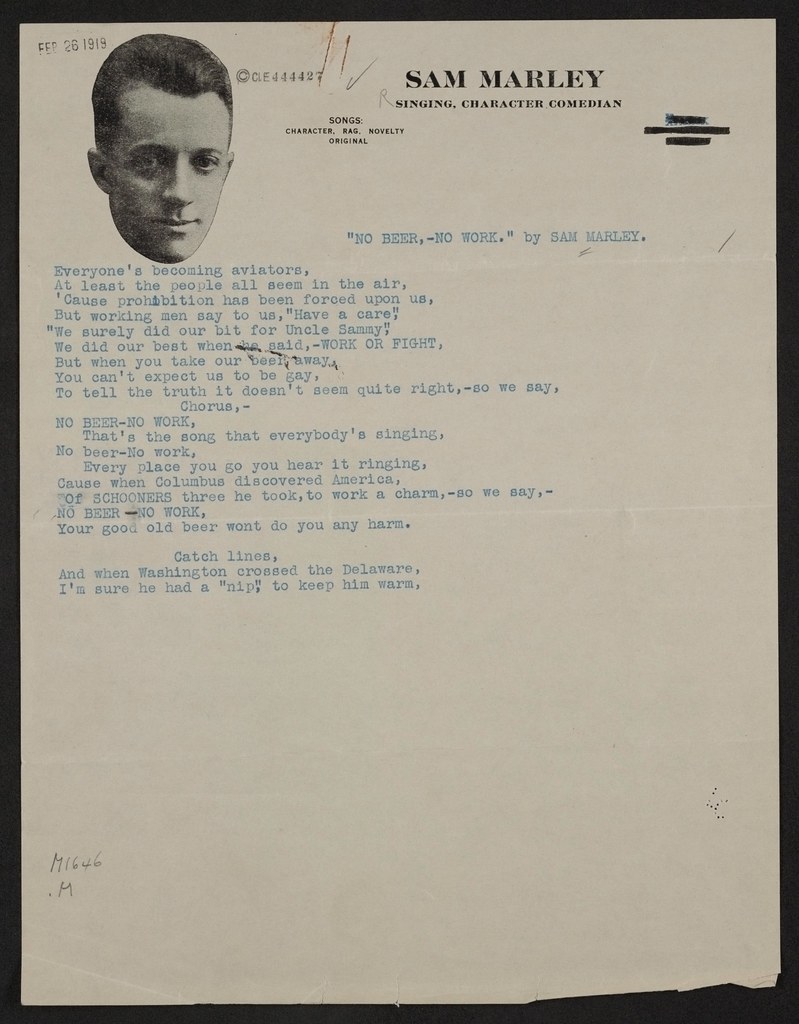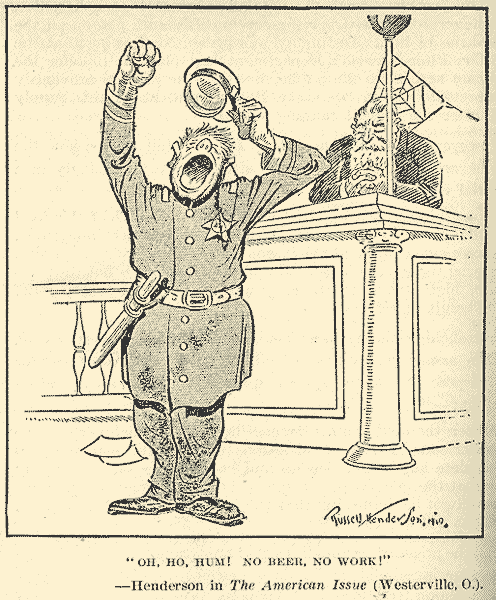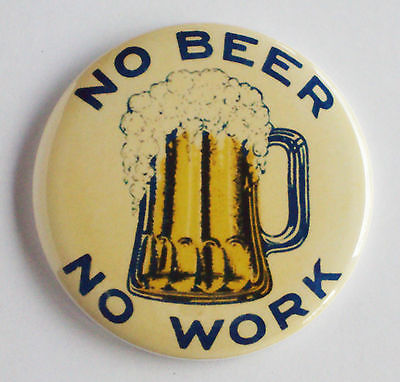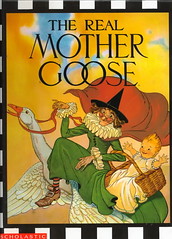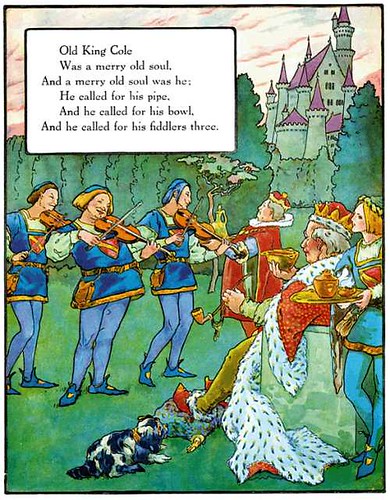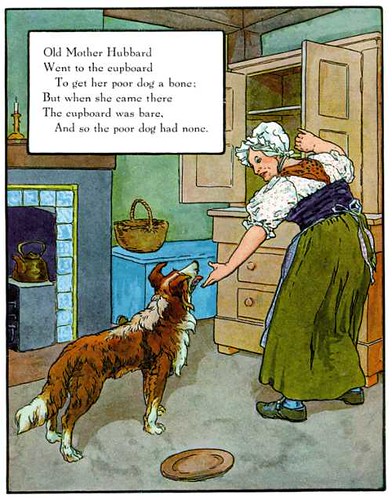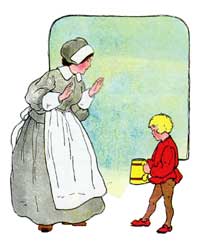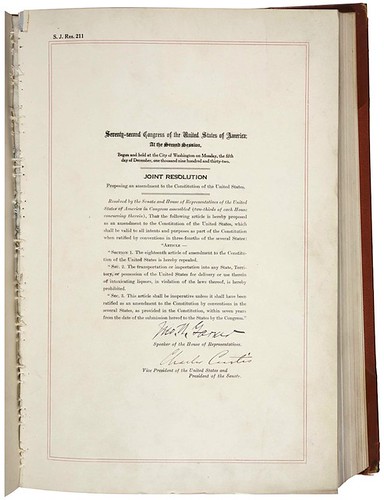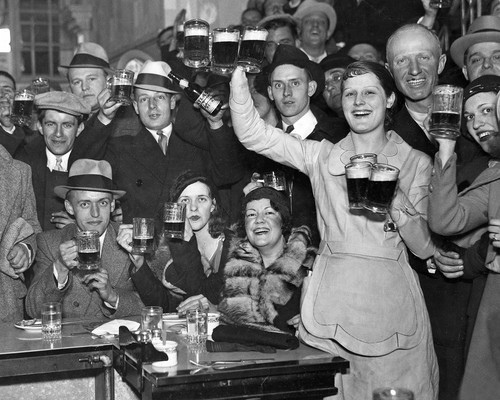![]()
February 28 is Finnish Culture Day, more commonly known as Kalevala Day. According to the Finnish Embassy, “Kalevala Day is celebrated in Finland on the 28th of February, in honour of the day on which the Old Kalevala’s foreword was dated by Lönnrot (February 28, 1835). Kalevala Day is an official flag-raising day in Finland, and simultaneously the Day of Finnish culture.”
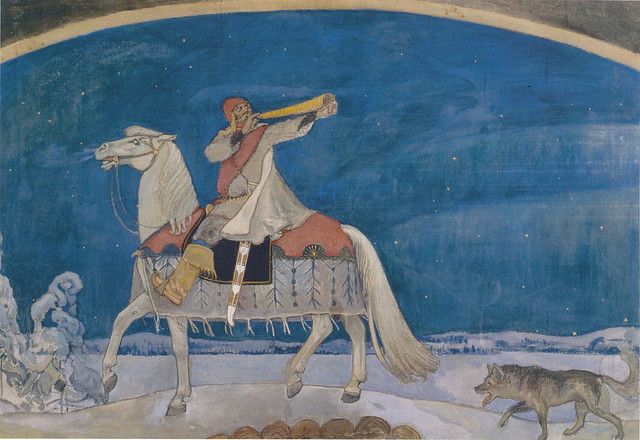
Here’s one account about why the Kalevala is so important to Finland, and specifically Finnish identity:
The first edition of the Kalevala appeared in 1835, compiled and edited by Elias Lönnrot on the basis of the epic folk poems he had collected in Finland and Karelia. This poetic song tradition, sung in an unusual, archaic trochaic tetrametre, had been part of the oral tradition among speakers of Balto-Finnic languages for 2,000 years.
When the Kalevala appeared in print for the first time, Finland had been an autonomous Grand Duchy under Russia for a quarter of a century. Prior to this, until 1809, Finland had been a part of the Swedish empire.
The Kalevala marked an important turning point for Finnish-language culture and caused a stir abroad, as well. It brought a small, unknown people to the attention of other Europeans, and bolstered the Finns’ self-confidence and faith in the possibilities of the Finnish language and culture. The Kalevala began to be called the Finnish national epic.
Elias Lönnrot and his colleagues continued their efforts to collect folk poetry, and new material quickly accumulated. Using this new material, Lönnrot published a second, expanded version of the Kalevala in 1849. This New Kalevala is the version which has been read in Finland ever since and upon which most translations are based.
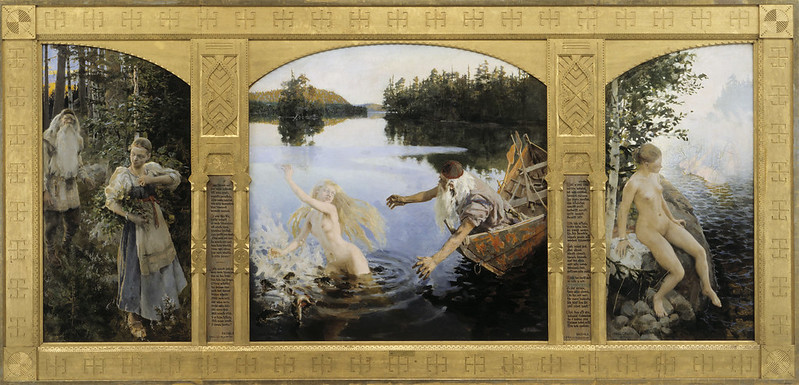
Aino-Triptych by Akseli Gallen-Kallela 1891. Left: The first meeting of Aino and Väinämöinen. Right: Aino laments her woes and decides to end her life rather than marry an old man. Middle: The end of the story arc – Väinämöinen catches the Aino fish but is unable to keep hold of her.
And this is the introduction from the Kalevala page on Wikipedia:
The Kalevala or The Kalewala (/ˌkɑːləˈvɑːlə/; Finnish: [ˈkɑle̞ʋɑlɑ]) is a 19th-century work of epic poetry compiled by Elias Lönnrot from Karelian and Finnish oral folklore and mythology.
It is regarded as the national epic of Karelia and Finland and is one of the most significant works of Finnish literature. The Kalevala played an instrumental role in the development of the Finnish national identity, the intensification of Finland’s language strife and the growing sense of nationality that ultimately led to Finland’s independence from Russia in 1917.
The first version of The Kalevala (called The Old Kalevala) was published in 1835. The version most commonly known today was first published in 1849 and consists of 22,795 verses, divided into fifty songs (Finnish: runot). The title can be interpreted as “The Land of Kaleva” or “Kalevia”.
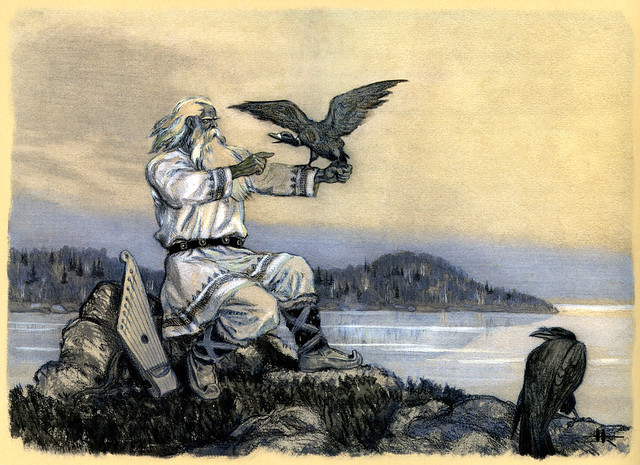
I wrote about it several years ago, because one of the chapters, Chapter or Rune XX, is all about brewing beer for a wedding. The parts that talks about brewing begins after the art work from the Kalevala below, after the short post I did for a page here a while back. Enjoy.
The Kalevala
The Kalevala is a book and epic poem which the Finn Elias Lönnrot compiled from Finnish and Karelian folklore in the nineteenth century. It is held to be the national epic of Finland and is traditionally thought of as one of the most significant works of Finnish literature. Karelian citizens and other Balto-Finnic speakers also value the work. The Kalevala is credited with some of the inspiration for the national awakening that ultimately led to Finnish governments independence from that of Russia in 1917.
The name can be interpreted as the “lands of Kaleva” (by the Finnish suffix -la/lä for place). The epic consists of 22,795 verses, divided into fifty cantos or “chapters” (Finnish runo). Of those 22,795 verses, more lines were devoted to the oriins of beer than of the origins of mankind.
Virtual Finland also has some basic information about the epic poem. Below is Chapter or Rune XX, which is all about brewing beer for a wedding. The parts that talks about brewing begins after the second art work from the Kalevala below. If you’re keen to read the whole thing, it’s online at the Sacred Texts website.
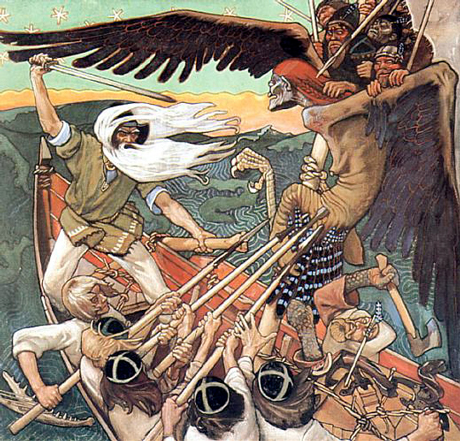
RUNE XX
THE BREWING OF BEER
Now we sing the wondrous legends,
Songs of wedding-feasts and dances,
Sing the melodies of wedlock,
Sing the songs of old tradition;
Sing of Ilmarinen’s marriage
To the Maiden of the Rainbow,
Fairest daughter of the Northland,
Sing the drinking-songs of Pohya.
Long prepared they for the wedding
In Pohyola’s halls and chambers,
In the courts of Sariola;
Many things that Louhi ordered,
Great indeed the preparations
For the marriage of the daughter,
For the feasting of the heroes,
For the drinking of the strangers,
For the feeding of the poor-folk,
For the people’s entertainment.
Grew an ox in far Karjala,
Not the largest, nor the smallest,
Was the ox that grew in Suomi;
But his size was all-sufficient,
For his tail was sweeping Jamen,
And his head was over Kemi,
Horns in length a hundred fathoms,
Longer than the horns his mouth was;
Seven days it took a weasel
To encircle neck and shoulders;
One whole day a swallow journeyed
From one horn-tip to the other,
Did not stop between for resting.
Thirty days the squirrel travelled
From the tail to reach the shoulders,
But he could not gain the horn-tip
Till the Moon had long passed over.
This young ox of huge dimensions,
This great calf of distant Suomi,
Was conducted from Karjala
To the meadows of Pohyola;
At each horn a hundred heroes,
At his head and neck a thousand.
When the mighty ox was lassoed,
Led away to Northland pastures,
Peacefully the monster journeyed
By the bays of Sariola,
Ate the pasture on the borders;
To the clouds arose his shoulders,
And his horns to highest heaven.
Not in all of Sariola
Could a butcher be discovered
That could kill the ox for Louhi,
None of all the sons of Northland,
In her hosts of giant people,
In her rising generation,
In the hosts of those grown older.
Came a hero from a distance,
Wirokannas from Karelen,
And these words the gray-beard uttered:
“Wait, O wait, thou ox of Suomi,
Till I bring my ancient war-club;
Then I’ll smite thee on thy forehead,
Break thy skull, thou willing victim!
Nevermore wilt thou in summer
Browse the woods of Sariola,
Bare our pastures, fields, and forests;
Thou, O ox, wilt feed no longer
Through the length and breadth of Northland,
On the borders of this ocean!”
When the ancient Wirokannas
Started out the ox to slaughter,
When Palwoinen swung his war-club,
Quick the victim turned his forehead,
Flashed his flaming eyes upon him;
To the fir-tree leaped the hero,
In the thicket hid Palwoinen,
Hid the gray-haired Wirokannas.
Everywhere they seek a butcher,
One to kill the ox of Suomi,
In the country of Karelen,
And among the Suomi-giants,
In the quiet fields of Ehstland,
On the battle-fields of Sweden,
Mid the mountaineers of Lapland,
In the magic fens of Turya;
Seek him in Tuoni’s empire,
In the death-courts of Manala.
Long the search, and unsuccessful,
On the blue back of the ocean,
On the far-outstretching pastures.
There arose from out the sea-waves,
Rose a hero from the waters,
On the white-capped, roaring breakers,
From the water’s broad expanses;
Nor belonged he to the largest,
Nor belonged he to the smallest;
Made his bed within a sea-shell,
Stood erect beneath a flour-sieve,
Hero old, with hands of iron,
And his face was copper-colored;
Quick the hero full unfolded,
Like the full corn from the kernel.
On his head a hat of flint-stone,
On his feet were sandstone-sandals,
In his hand a golden cleaver,
And the blade was copper-handled.
Thus at last they found a butcher,
Found the magic ox a slayer.
Nothing has been found so mighty
That it has not found a master.
As the sea-god saw his booty,
Quickly rushed he on his victim,
Hurled him to his knees before him,
Quickly felled the calf of Suomi,
Felled the young ox of Karelen.
Bountifully meat was furnished;
Filled at least a thousand hogsheads
Of his blood were seven boatfuls,
And a thousand weight of suet,
For the banquet of Pohyola,
For the marriage-feast of Northland.
In Pohyola was a guest-room,
Ample was the hall of Louhi,
Was in length a hundred furlongs,
And in breadth was nearly fifty;
When upon the roof a rooster
Crowed at break of early morning,
No one on the earth could hear him;
When the dog barked at one entrance,
None could hear him at the other.
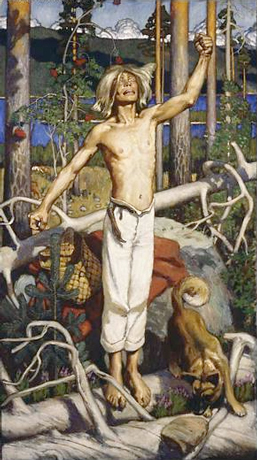
Louhi, hostess of Pohyola,
Hastens to the hall and court-room,
In the centre speaks as follows:
“Whence indeed will come the liquor,
Who will brew me beer from barley,
Who will make the mead abundant,
For the people of the Northland,
Coming to my daughter’s marriage,
To her drinking-feast and nuptials?
Cannot comprehend the malting,
Never have I learned the secret,
Nor the origin of brewing.”
Spake an old man from his corner:
“Beer arises from the barley,
Comes from barley, hops, and water,
And the fire gives no assistance.
Hop-vine was the son of Remu,
Small the seed in earth was planted,
Cultivated in the loose soil,
Scattered like the evil serpents
On the brink of Kalew-waters,
On the Osmo-fields and borders.
There the young plant grew and flourished,
There arose the climbing hop-vine,
Clinging to the rocks and alders.
“Man of good-luck sowed the barley
On the Osmo hills and lowlands,
And the barley grew and flourished,
Grew and spread in rich abundance,
Fed upon the air and water,
On the Osmo plains and highlands,
On the fields of Kalew-heroes.
“Time had travelled little distance,
Ere the hops in trees were humming,
Barley in the fields was singing,
And from Kalew’s well the water,
This the language of the trio:
‘Let us join our triple forces,
Join to each the other’s powers;
Sad alone to live and struggle,
Little use in working singly,
Better we should toil together.’
“Osmotar, the beer-preparer,
Brewer of the drink refreshing,
Takes the golden grains of barley,
Taking six of barley-kernels,
Taking seven tips of hop-fruit,
Filling seven cups with water,
On the fire she sets the caldron,
Boils the barley, hops, and water,
Lets them steep, and seethe, and bubble
Brewing thus the beer delicious,
In the hottest days of summer,
On the foggy promontory,
On the island forest-covered;
Poured it into birch-wood barrels,
Into hogsheads made of oak-wood.
“Thus did Osmotar of Kalew
Brew together hops and barley,
Could not generate the ferment.
Thinking long and long debating,
Thus she spake in troubled accents:
‘What will bring the effervescence,
Who will add the needed factor,
That the beer may foam and sparkle,
May ferment and be delightful?’
Kalevatar, magic maiden,
Grace and beauty in her fingers,
Swiftly moving, lightly stepping,
In her trimly-buckled sandals,
Steps upon the birch-wood bottom,
Turns one way, and then another,
In the centre of the caldron;
Finds within a splinter lying
From the bottom lifts the fragment,
Turns it in her fingers, musing:
‘What may come of this I know not,
In the hands of magic maidens,
In the virgin hands of Kapo,
Snowy virgin of the Northland!’
“Kalevatar took the splinter
To the magic virgin, Kapo,
Who by unknown force and insight.
Rubbed her hands and knees together,
And produced a snow-white squirrel;
Thus instructed she her creature,
Gave the squirrel these directions:
‘Snow-white squirrel, mountain-jewel,
Flower of the field and forest,
Haste thee whither I would send thee,
Into Metsola’s wide limits,
Into Tapio’s seat of wisdom;
Hasten through the heavy tree-tops,
Wisely through the thickest branches,
That the eagle may not seize thee,
Thus escape the bird of heaven.
Bring me ripe cones from the fir-tree,
From the pine-tree bring me seedlings,
Bring them to the hands of Kapo,
For the beer of Osmo’s daughter.’
Quickly hastened forth the squirrel,
Quickly sped the nimble broad-tail,
Swiftly hopping on its journey
From one thicket to another,
From the birch-tree to the aspen,
From the pine-tree to the willow,
From the sorb-tree to the alder,
Jumping here and there with method,
Crossed the eagle-woods in safety,
Into Metsola’s wide limits,
Into Tapio’s seat of wisdom;
There perceived three magic pine-trees,
There perceived three smaller fir-trees,
Quickly climbed the dark-green branches,
Was not captured by the eagle,
Was not mangled in his talons;
Broke the young cones from the fir-tree,
Cut the shoots of pine-tree branches,
Hid the cones within his pouches,
Wrapped them in his fur-grown mittens
Brought them to the hands of Kapo,
To the magic virgin’s fingers.
Kapo took the cones selected,
Laid them in the beer for ferment,
But it brought no effervescence,
And the beer was cold and lifeless.
“Osmotar, the beer-preparer,
Kapo, brewer of the liquor,
Deeply thought and long considered:
‘What will bring the effervescence,
Who will lend me aid efficient,
That the beer may foam and sparkle,
May ferment and be refreshing?’
“Kalevatar, sparkling maiden,
Grace and beauty in her fingers,
Softly moving, lightly stepping,
In her trimly-buckled sandals,
Steps again upon the bottom,
Turns one way and then another,
In the centre of the caldron,
Sees a chip upon the bottom,
Takes it from its place of resting,
Looks upon the chip and muses
‘What may come of this I know not,
In the hands of mystic maidens,
In the hands of magic Kapo,
In the virgin’s snow-white fingers.’
“Kalevatar took the birch-chip
To the magic maiden, Kapo,
Gave it to the white-faced maiden.
Kapo, by the aid of magic,
Rubbed her hands and knees together,
And produced a magic marten,
And the marten, golden-breasted;
Thus instructed she her creature,
Gave the marten these directions.
‘Thou, my golden-breasted marten,
Thou my son of golden color,
Haste thou whither I may send thee,
To the bear-dens of the mountain,
To the grottoes of the growler,
Gather yeast upon thy fingers,
Gather foam from lips of anger,
From the lips of bears in battle,
Bring it to the hands of Kapo,
To the hands of Osmo’s daughter.’
“Then the marten golden-breasted,
Full consenting, hastened onward,
Quickly bounding on his journey,
Lightly leaping through the distance
Leaping o’er the widest rivers,
Leaping over rocky fissures,
To the bear-dens of the mountain,
To the grottoes of the growler,
Where the wild-bears fight each other,
Where they pass a dread existence,
Iron rocks, their softest pillows,
In the fastnesses of mountains;
From their lips the foam was dripping,
From their tongues the froth of anger;
This the marten deftly gathered,
Brought it to the maiden, Kapo,
Laid it in her dainty fingers.
“Osmotar, the beer-preparer,
Brewer of the beer of barley,
Used the beer-foam as a ferment;
But it brought no effervescence,
Did not make the liquor sparkle.
“Osmotar, the beer-preparer,
Thought again, and long debated:
‘Who or what will bring the ferment,
Th at my beer may not be lifeless?’
“Kalevatar, magic maiden,
Grace and beauty in her fingers,
Softly moving, lightly stepping,
In her trimly-buckled sandals,
Steps again upon the bottom,
Turns one way and then another,
In the centre of the caldron,
Sees a pod upon the bottom,
Lifts it in her snow-white fingers,
Turns it o’er and o’er, and muses:
‘What may come of this I know not,
In the hands of magic maidens,
In the hands of mystic Kapo,
In the snowy virgin’s fingers?’
“Kalevatar, sparkling maiden,
Gave the pod to magic Kapo;
Kapo, by the aid of magic,
Rubbed the pod upon her knee-cap,
And a honey-bee came flying
From the pod within her fingers,
Kapo thus addressed her birdling:
‘Little bee with honeyed winglets,
King of all the fragrant flowers,
Fly thou whither I direct thee,
To the islands in the ocean,
To the water-cliffs and grottoes,
Where asleep a maid has fallen,
Girdled with a belt of copper
By her side are honey-grasses,
By her lips are fragrant flowers,
Herbs and flowers honey-laden;
Gather there the sweetened juices,
Gather honey on thy winglets,
From the calyces of flowers,
From the tips of seven petals,
Bring it to the hands of Kapo,
To the hands of Osmo’s daughter.’
“Then the bee, the swift-winged birdling,
Flew away with lightning-swiftness
On his journey to the islands,
O’er the high waves of the ocean;
Journeyed one day, then a second,
Journeyed all the next day onward,
Till the third day evening brought him
To the islands in the ocean,
To the water-cliffs and grottoes;
Found the maiden sweetly sleeping,
In her silver-tinselled raiment,
Girdled with a belt of copper,
In a nameless meadow, sleeping,
In the honey-fields of magic;
By her side were honeyed grasses,
By her lips were fragrant flowers,
Silver stalks with golden petals;
Dipped its winglets in the honey,
Dipped its fingers in the juices
Of the sweetest of the flowers,
Brought the honey back to Kapo,
To the mystic maiden’s fingers.
“Osmotar, the beer-preparer,
Placed the honey in the liquor;
Kapo mixed the beer and honey,
And the wedding-beer fermented;
Rose the live beer upward, upward,
From the bottom of the vessels,
Upward in the tubs of birch-wood,
Foaming higher, higher, higher,
Till it touched the oaken handles,
Overflowing all the caldrons;
To the ground it foamed and sparkled,
Sank away in sand and gravel.
“Time had gone but little distance,
Scarce a moment had passed over,
Ere the heroes came in numbers
To the foaming beer of Northland,
Rushed to drink the sparkling liquor.
Ere all others Lemminkainen
Drank, and grew intoxicated
On the beer of Osmo’s daughter,
On the honey-drink of Kalew.
“Osmotar, the beer-preparer,
Kapo, brewer of the barley,
Spake these words in saddened accents:
‘Woe is me, my life hard-fated,
Badly have I brewed the liquor,
Have not brewed the beer in wisdom,
Will not live within its vessels,
Overflows and fills Pohyola!’
“From a tree-top sings the redbreast,
From the aspen calls the robin:
‘Do not grieve, thy beer is worthy,
Put it into oaken vessels,
Into strong and willing barrels
Firmly bound with hoops of copper.’
“Thus was brewed the beer or Northland,
At the hands of Osmo’s daughter;
This the origin of brewing
Beer from Kalew-hops and barley;
Great indeed the reputation
Of the ancient beer of Kalew,
Said to make the feeble hardy,
Famed to dry the tears of women,
Famed to cheer the broken-hearted,
Make the aged young and supple,
Make the timid brave and mighty,
Make the brave men ever braver,
Fill the heart with joy and gladness,
Fill the mind with wisdom-sayings,
Fill the tongue with ancient legends,
Only makes the fool more foolish.”
When the hostess of Pohyola
Heard how beer was first fermented,
Heard the origin of brewing,
Straightway did she fill with water
Many oaken tubs and barrels;
Filled but half the largest vessels,
Mixed the barley with the water,
Added also hops abundant;
Well she mixed the triple forces
In her tubs of oak and birch-wood,
Heated stones for months succeeding,
Thus to boil the magic mixture,
Steeped it through the days of summer,
Burned the wood of many forests,
Emptied all the, springs of Pohya;
Daily did the, forests lesson,
And the wells gave up their waters,
Thus to aid the hostess, Louhi,
In the brewing of the liquors,
From the water, hops, and barley,
And from honey of the islands,
For the wedding-feast of Northland,
For Pohyola’s great carousal
And rejoicings at the marriage
Of the Malden of the Rainbow
To the blacksmith, Ilmarinen,
Metal-worker of Wainola.
Smoke is seen upon the island,
Fire, upon the promontory,
Black smoke rising to the heavens
From the fire upon the island;
Fills with clouds the half of Pohya,
Fills Karelen’s many hamlets;
All the people look and wonder,
This the chorus of the women:
“Whence are rising all these smoke-clouds,
Why this dreadful fire in Northland?
Is not like the smoke of camp-fires,
Is too large for fires of shepherds!”
Lemminkainen’s ancient mother
Journeyed in the early morning
For some water to the fountain,
Saw the smoke arise to heaven,
In the region of Pohyola,
These the words the mother uttered:
“‘Tis the smoke of battle-heroes,
From the beat of warring armies!”
Even Ahti, island-hero,
Ancient wizard, Lemminkainen,
Also known as Kaukomieli,
Looked upon the scene in wonder,
Thought awhile and spake as follows:
“I would like to see this nearer,
Learn the cause of all this trouble,
Whence this smoke and great confusion,
Whether smoke from heat of battle,
Or the bonfires of the shepherds.”
Kaukomieli gazed and pondered,
Studied long the rising smoke-clouds;
Came not from the heat of battle,
Came not from the shepherd bonfires;
Heard they were the fires of Louhi
Brewing beer in Sariola,
On Pohyola’s promontory;
Long and oft looked Lemminkainen,
Strained in eagerness his vision,
Stared, and peered, and thought, and wondered,
Looked abashed and envy-swollen,
“O beloved, second mother,
Northland’s well-intentioned hostess,
Brew thy beer of honey-flavor,
Make thy liquors foam and sparkle,
For thy many friends invited,
Brew it well for Lemminkainen,
For his marriage in Pohyola
With the Maiden of the Rainbow.”
Finally the beer was ready,
Beverage of noble heroes,
Stored away in casks and barrels,
There to rest awhile in silence,
In the cellars of the Northland,
In the copper-banded vessels,
In the magic oaken hogsheads,
Plugs and faucets made of copper.
Then the hostess of Pohyola
Skilfully prepared the dishes,
Laid them all with careful fingers
In the boiling-pans and kettles,
Ordered countless loaves of barley,
Ordered many liquid dishes,
All the delicacies of Northland,
For the feasting of her people,
For their richest entertainment,
For the nuptial songs and dances,
At the marriage of her daughter
With the blacksmith, Ilmarinen.
When the loaves were baked and ready.
When the dishes all were seasoned,
Time had gone but little distance,
Scarce a moment had passed over,
Ere the beer, in casks imprisoned,
Loudly rapped, and sang, and murmured:
“Come, ye heroes, come and take me,
Come and let me cheer your spirits,
Make you sing the songs of wisdom,
That with honor ye may praise me,
Sing the songs of beer immortal!”
Straightway Louhi sought a minstrel,
Magic bard and artist-singer,
That the beer might well be lauded,
Might be praised in song and honor.
First as bard they brought a salmon,
Also brought a pike from ocean,
But the salmon had no talent,
And the pike had little wisdom;
Teeth of pike and gills of salmon
Were not made for singing legends.
Then again they sought a singer,
Magic minstrel, beer-enchanter,
Thus to praise the drink of heroes,
Sing the songs of joy and gladness;
And a boy was brought for singing;
But the boy had little knowledge,
Could not praise the beer in honor;
Children’s tongues are filled with questions,
Children cannot speak in wisdom,
Cannot sing the ancient legends.
Stronger grew the beer imprisoned
In the copper-banded vessels,
Locked behind the copper faucets,
Boiled, and foamed, and sang, and murmured:
“If ye do not bring a singer,
That will sing my worth immortal,
That will sing my praise deserving,
I will burst these bands of copper,
Burst the heads of all these barrels;
Will not serve the best of heroes
Till he sings my many virtues.”
Louhi, hostess of Pohyola,
Called a trusted maiden-servant,
Sent her to invite the people
To the marriage of her daughter,
These the words that Louhi uttered:
“O my trusted, truthful maiden,
Servant-maid to me belonging,
Call together all my people,
Call the heroes to my banquet,
Ask the rich, and ask the needy,
Ask the blind and deaf, and crippled,
Ask the young, and ask the aged;
Go thou to the hills, and hedges,
To the highways, and the by-ways,
Urge them to my daughter’s wedding;
Bring the blind, and sorely troubled,
In my boats upon the waters,
In my sledges bring the halting,
With the old, and sick, and needy;
Ask the whole of Sariola,
Ask the people of Karelen,
Ask the ancient Wainamoinen,
Famous bard and wisdom-singer;
But I give command explicit
Not to ask wild Lemminkainen,
Not the island-dweller, Ahti!”
This the question of the servant:
“Why not ask wild Lemminkainen,
Ancient islander and minstrel?”
Louhi gave this simple answer:
“Good the reasons that I give thee
Why the wizard, Lemminkainen,
Must not have an invitation
To my daughter’s feast and marriage
Ahti courts the heat of battle,
Lemminkainen fosters trouble,
Skilful fighter of the virtues;
Evil thinking, acting evil,
He would bring but pain and sorrow,
He would jest and jeer at maidens
In their trimly buckled raiment,
Cannot ask the evil-minded!”
Thus again the servant questions:
“Tell me how to know this Ahti,
Also known as Lemminkainen,
That I may not ask him hither;
Do not know the isle of Ahti,
Nor the home of Kaukomieli
Spake the hostess of Pohyola:
“Easy ’tis to know the wizard,
Easy find the Ahti-dwelling:
Ahti lives on yonder island,
On that point dwells Lemminkainen,
In his mansion near the water,
Far at sea his home and dwelling.”
Thereupon the trusted maiden
Spread the wedding-invitations
To the people of Pohyola,
To the tribes of Kalevala;
Asked the friendless, asked the homeless
Asked the laborers and shepherds,
Asked the fishermen and hunters,
Asked the deaf, the dumb, the crippled,
Asked the young, and asked the aged,
Asked the rich, and asked the needy;
Did not give an invitation
To the reckless Lemminkainen,
Island-dweller of the ocean.

